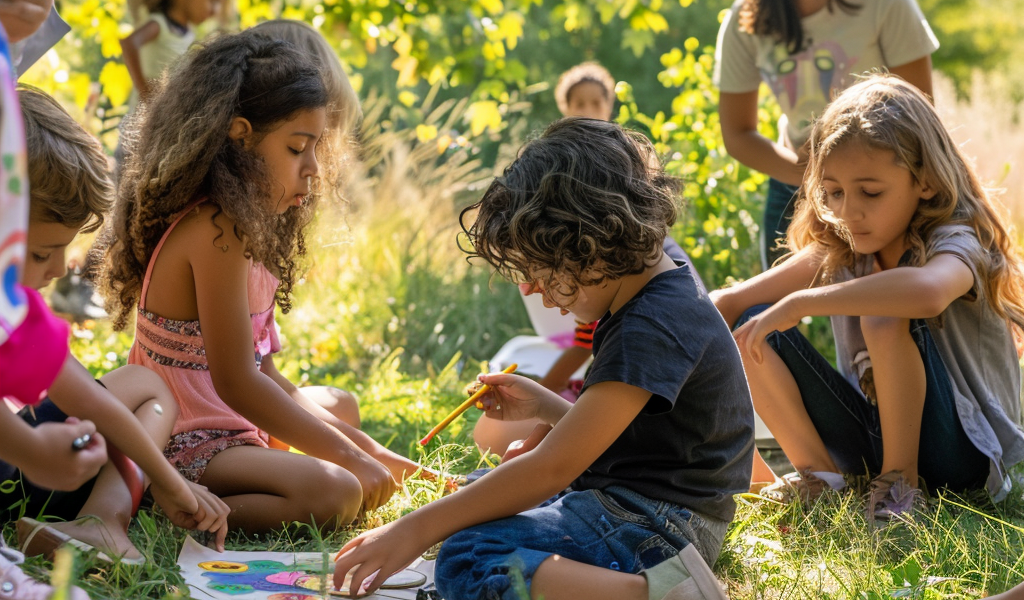In a groundbreaking study, researchers have revealed that spending time in nature can significantly benefit the mental health of school-aged children. The findings, published in the journal JAMA Network Open, suggest that outdoor education programs can provide essential relief for children grappling with anxiety, depression, and behavioral challenges.
The study, conducted by a team from the University of Montréal, focused on approximately 1,000 fifth and sixth graders across various schools in Quebec. These schools were strategically located within a mile of parks or green spaces, allowing easy access for outdoor learning. The research spanned three months during the spring, a season when nature is particularly inviting.
Participants in the study were randomly divided into two groups: one group continued with traditional indoor classroom activities, while the other group was given the opportunity to spend two hours each week learning in a natural setting. This outdoor learning did not detract from their academic curriculum; instead, subjects such as math, language arts, and science were seamlessly integrated into the outdoor experience.
In addition to their regular studies, children engaged in short, 10- to 15-minute activities aimed at promoting mental health awareness. These activities included creative tasks like drawing trees or mandalas, composing haiku poems, practicing mindful walking, and discussing the cycles of life and death as observed in nature.
The results of the intervention were striking. Teachers reported noticeable improvements in the behavior of students who participated in the outdoor program, particularly among those who initially exhibited significant mental health issues. According to Sylvana Côté, a professor of public health and co-author of the study, “Nature-based programs may offer targeted benefits for children with higher levels of mental health vulnerabilities and potentially act as an equalizer of mental health among school-age children.”
Teachers observed that students returning from their nature excursions appeared calmer, less anxious, and more focused in class. This was especially true for children who had previously struggled with anxiety, depression, impulsivity, and difficulties in social interactions. Marie-Claude Geoffroy, an associate professor of psychiatry at McGill University and senior author of the study, noted, “We found that children with higher mental health symptoms at baseline showed greater reductions in symptoms following the intervention.”
The initiative was inspired by the challenges presented during the COVID-19 pandemic, which heightened awareness of the importance of mental health and the potential benefits of outdoor activities. The researchers hope that these findings will encourage schools worldwide to consider incorporating outdoor learning into their curriculums as a means of supporting students’ mental well-being.
As schools continue to explore innovative ways to promote mental health among students, this study highlights the value of integrating nature into educational practices. The positive outcomes observed in the children who participated in the outdoor program could serve as a model for future educational interventions aimed at addressing mental health challenges in young learners.
This research underscores the urgent need for educational institutions to prioritize mental health and consider the role of the natural environment in fostering a supportive learning atmosphere. By embracing nature-based educational programs, schools can help cultivate resilience and emotional well-being in their students.
The implications of this study extend beyond individual schools; they call for a broader reevaluation of educational practices and the potential benefits of outdoor learning. As educators and policymakers seek effective strategies to support mental health in children, the evidence presented in this research could pave the way for a transformative approach to education that prioritizes both academic achievement and emotional health.
In summary, the findings from this research highlight the profound impact that nature can have on the mental health of children. By allowing students to engage with the natural world, schools can create an environment conducive to learning and personal growth, ultimately leading to healthier, happier, and more successful students.





